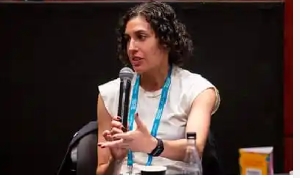 Ms Ariella Rojhani, Director for the PHC at Vital Strategies
Ms Ariella Rojhani, Director for the PHC at Vital Strategies
Four West African Cities, Abidjan in Côte d’Ivoire, Dakar in Senegal, Freetown in Sierra Leone, Ouagadougou, in Burkina Faso are implementing healthy food policies to address the rising rates of Non-Communicable Diseases (NCDs).
Through the Partnership for Healthy Cities (PHC) Food Policy, the cities are identifying ways by which their urban population can eat healthy foods in healthier environments.
Ms Ariella Rojhani, Director for the PHC at Vital Strategies, told the press at the PHC Summit in Cape Town that the cities were successfully implementing nutritional measures that was reforming what children ate and drunk in a school environment.
“The cities are enforcing nutritional standards for food served in schools, hospitals and other public places ensuring that only healthy food options are available,” she said.
Abidjan, Côte d’Ivoire, and Dakar, Senegal are for instance designing nutrition standards aimed at reducing excessive salt consumption in public schools.
Freetown, Sierra Leone is training market vendors on the dangers of excess salt consumption and on how to bring the information to their customers.
Ouagadougou, Burkina Faso is creating nutritional standards and developing a policy on foods served in schools and hospitals, with a focus on reducing salt and sugar consumption.
Ms. Rojhani said as West African cities experienced epiderniological transition from infectious diseases to chronic NCDs, where cities were observing an increase in stroke, hypertension, diabetes and cancers, enforcing strong healthy food interventions was necessary.
She said through the power of the partnerships, cities were becoming successful by learning from each other and replicating ideas with focus on developing meaningful nutritional standards.
“Cities are putting forward rules that say that food must be limited to fresh products, it must not contain excess salt and sugar,” she said.
Ms Rojhani said in Latin America, there had been a huge demand for stronger food policies, as a human right issue, and that people in communities were demanding for healthier food and clean water.
The city of Cali, Colombia is implementing a new decree that ensures all students have access to nutritious and wholesome meals during school hours.
Córdoba, Argentina is preparing to pass a food policy restricting the sale and advertising of unhealthy food and beverages in schools and requiring healthy alternatives.
Montevideo, Uruguay is incentivising food services to provide healthier meals to public sector workers, through its “Healthy Canteens” initiative.
Cairo, Egypt is working on a project aimed at making healthy food more accessible to primary-school aged children.
London, United Kingdom is reducing children’s exposure to unhealthy food and drink through advertising restrictions.
Under the PHC programme, each one of the Partnership cities works with at least one out of PHC public health areas which are food policy, overdose prevention, road safety, safe and active mobility, surveillance and tobacco control.
With the food policy, cities get to strengthening food policy measures through four intervention areas; tax, sugary drinks, set nutrition standards for foods served and sold in public institutions, regulate food and drink marketing and create healthier restaurant environments.
